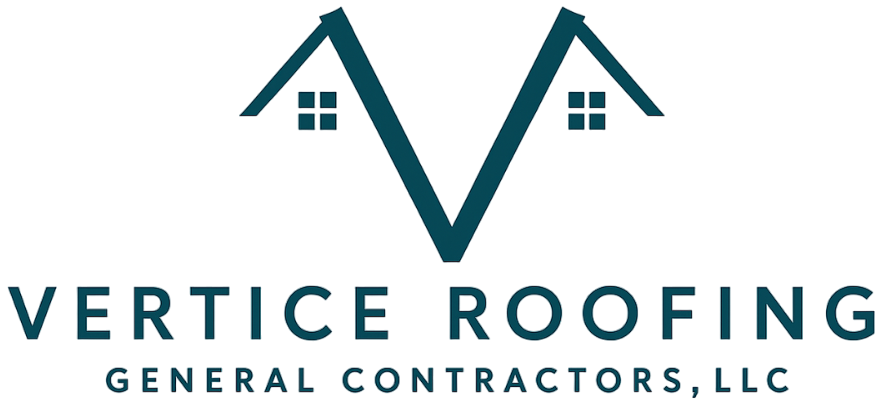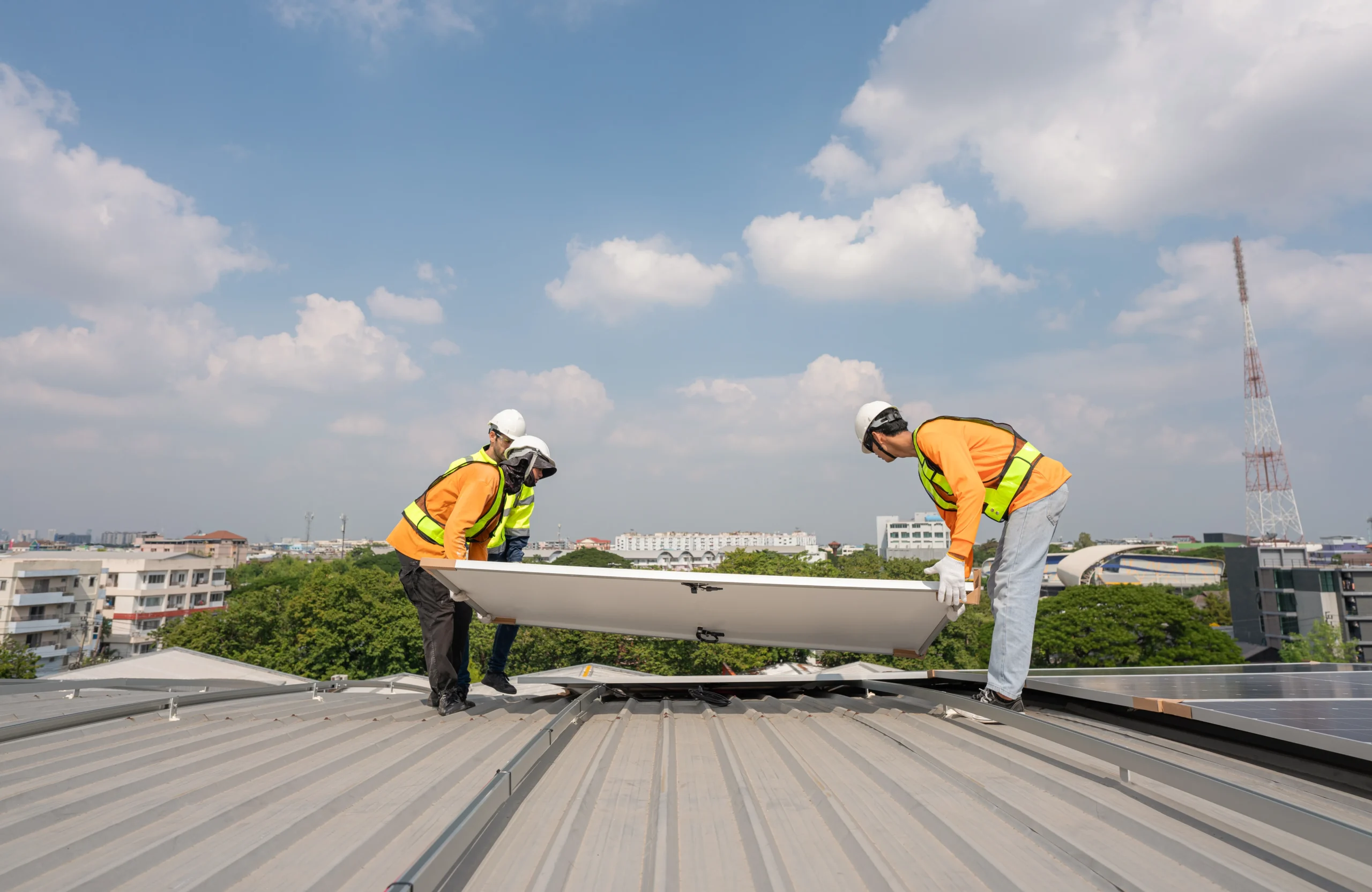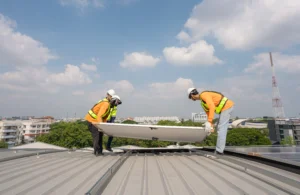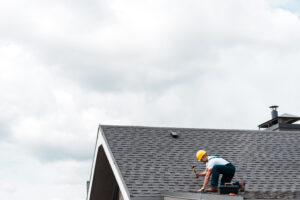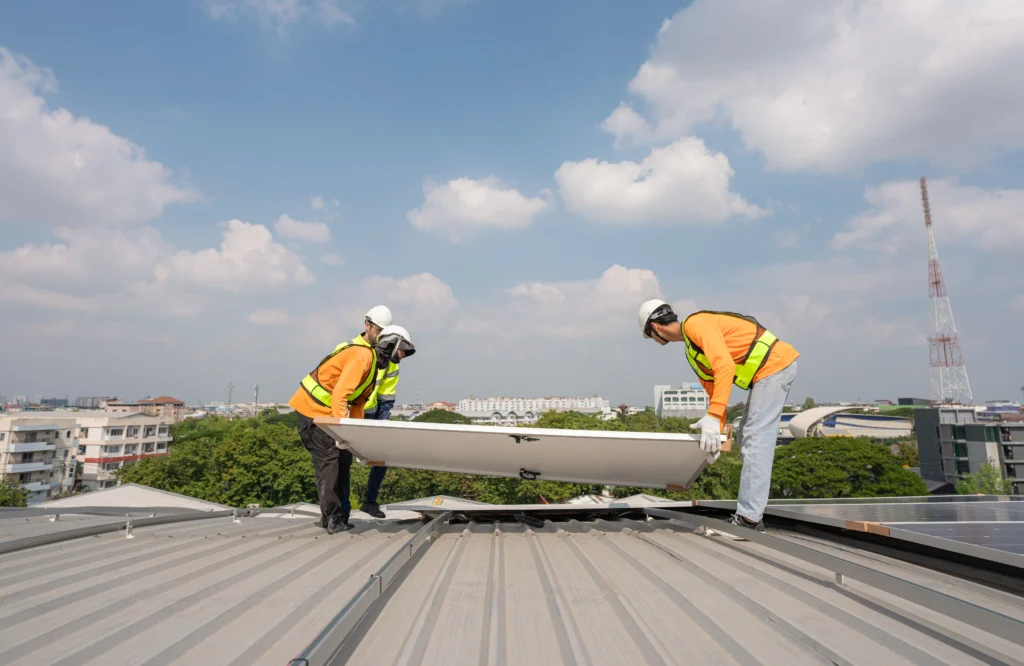
For office building and warehouse owners, a roof is far more than just a cover over their property—it’s a critical component of the building’s infrastructure. A damaged or deteriorating roof can lead to costly repairs, operational disruptions, and even safety hazards. That’s why regular roof inspections are essential for maintaining commercial roofing systems, ensuring longevity, and protecting your investment.
The Importance of Commercial Roof Maintenance
Commercial roofs are exposed to the elements every day. From Texas heat and heavy sun exposure to sudden storms, hail, and high winds, your roofing system is constantly under stress. Unlike residential roofs, commercial and industrial roofs often cover large areas, use flat or low-slope designs, and are constructed from specialized materials like TPO, EPDM, or modified bitumen. These factors make routine roof inspections and preventative maintenance even more critical.
Regular inspections allow building owners and facility managers to detect minor issues before they become major problems. A small leak in a warehouse roof might seem inconsequential, but left unaddressed, it can lead to water damage, mold growth, structural deterioration, and costly downtime. Likewise, office buildings with aging or damaged roofs risk interior damage, disruption to daily operations, and a negative impact on employee safety and comfort.
Extending the Lifespan of Your Commercial Roof
Routine roof inspections play a crucial role in extending the lifespan of your commercial roofing system. During an inspection, a professional roofing contractor evaluates all key components, including:
- Membranes and roofing materials for signs of wear, cracks, or punctures
- Flashing around vents, skylights, and HVAC units
- Drainage systems to ensure water flows properly and does not pool
- Structural integrity, including support beams and decking
By identifying early signs of deterioration, facility managers can schedule timely repairs, maintain warranties, and avoid full roof replacement prematurely. This proactive approach not only saves money but also ensures that your office or warehouse remains operational without unexpected disruptions.
Detecting Storm Damage Early
Texas weather is unpredictable. Hail, wind, and heavy rainstorms can cause significant damage to commercial roofing systems, often in ways that are not immediately visible from the ground. Even minor roof damage from a storm can escalate if left unchecked, leading to leaks, insulation issues, and water damage to inventory or office equipment.
A professional roof inspection after a storm is a critical step in protecting your property. Skilled roofing contractors use advanced tools and techniques to assess the roof’s condition, document damage, and recommend repairs or partial replacements. Early detection allows you to file insurance claims promptly and reduces the likelihood of further damage that could result in more expensive repairs.
Preventing Costly Repairs
One of the biggest advantages of regular roof inspections is cost savings. Commercial roof repairs can become extremely expensive if issues are ignored. For example, a small puncture in a flat TPO roof can lead to widespread leaks, requiring extensive patching or even a full replacement. Similarly, clogged drains or damaged flashing can create water pooling that compromises the roof deck and structural supports.
By scheduling routine inspections, property owners can catch these problems early. Small repairs like resealing seams, replacing damaged shingles or membrane sections, and clearing drainage systems are far more cost-effective than emergency roof replacements or major structural repairs. Preventative maintenance also helps protect your building’s warranty, which often requires documented inspections to remain valid.
Safety and Compliance Benefits
Regular roof inspections aren’t just about preserving the roof itself—they’re also about safety and compliance. A deteriorating roof can present hazards to employees, tenants, and visitors. Loose materials, weak structural areas, or water damage can lead to accidents, slips, or collapses.
In addition, many commercial properties are subject to local building codes, insurance requirements, and occupational safety standards. Inspections provide the documentation and assurance that your roof meets these requirements. For warehouses storing inventory or office buildings with heavy foot traffic on rooftops, maintaining a safe roofing system is essential to avoid liability and ensure regulatory compliance.
Planning for Roof Replacement
Even with the best maintenance practices, all roofs eventually reach the end of their lifespan. Regular inspections help facility managers plan for future roof replacements. By monitoring the condition of roofing materials, membranes, and flashing, inspectors can provide accurate estimates for when a roof will need replacement.
This proactive planning allows businesses to budget effectively, schedule replacements with minimal disruption, and select the right materials for their specific commercial or industrial roofing needs. From energy-efficient TPO systems to durable EPDM or built-up roofing, inspections ensure that roof replacement projects are well-informed and cost-efficient.
Tailored Solutions for Office and Warehouse Roofing
Commercial roof inspections are not one-size-fits-all. Office buildings and warehouses have different roofing needs and challenges. For example, warehouses often feature large flat roofs with HVAC units, skylights, and vents, while office buildings may have sloped roofs or complex designs with multiple materials.
A professional roofing contractor customizes each inspection to the specific type of commercial roof, evaluating all critical components and providing a detailed report. This allows property owners to make informed decisions about repairs, maintenance, and replacements based on accurate, property-specific data.
Choosing the Right Roofing Partner
To get the most out of roof inspections, it’s essential to work with a reputable, experienced commercial roofing contractor. Look for companies with extensive experience in commercial and industrial roofing systems, knowledge of local climate challenges, and a proven track record of preventative maintenance and repair services.
A trusted roofing partner can provide comprehensive roof inspections, identify both visible and hidden issues, recommend cost-effective solutions, and coordinate repairs or replacements when necessary. This ensures your office or warehouse remains protected, functional, and compliant year-round.
Conclusion
Regular roof inspections are a critical component of commercial roofing maintenance for office buildings and warehouses. They help detect storm damage, extend the lifespan of roofing systems, prevent costly repairs, ensure safety, and facilitate informed planning for roof replacements. By investing in routine inspections and preventative maintenance, property owners and facility managers can protect their investment, minimize disruptions, and enjoy the peace of mind that comes from knowing their roofing system is in top condition.
With professional roof inspections from a trusted commercial roofing contractor, businesses in Dallas-Fort Worth, Houston, San Antonio, Austin, and beyond can stay ahead of roofing issues, maximize the longevity of their roofs, and maintain safe, secure, and efficient buildings for employees, tenants, and operations.
